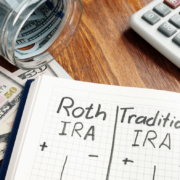Can Employers Provide Disaster Relief for COVID-19?
- Find out if the Internal Revenue Code allows disaster relief payments to be made on a tax-advantaged basis in regard to COVID-19.
- Learn the eligibility of qualified relief payments as excludable payments in regard to federal gross incomes.
- Discover the factors and considerations for disaster relief.
- Find out how working with a vendor may help you administer payments to employees.
Many employees have suffered financial hardships because of the COVID-19 pandemic. In response, some employers may consider offering financial assistance as a fringe benefit. A common question that arises regarding such an idea is: Does the Internal Revenue Code allow disaster relief payments to be made on a tax-advantaged basis specifically in relation to COVID-19?
Excludable payments
Section 139 of the tax code allows individuals to exclude from their federal gross incomes any amount they receive as a “qualified disaster relief payment.” Excludable payments include reimbursements or direct payments for reasonable and necessary personal, family, living or funeral expenses, or the repair, rehabilitation or replacement of an individual’s personal residence or its contents because of a qualified disaster. Payments aren’t excludable to the extent other compensation (such as insurance) covered the expenses.
Typically, the government offers qualified disaster relief payments following local or regional disasters — for example, a hurricane or flood. The term “qualified disaster,” however, includes any event determined by the President to warrant assistance under the Robert T. Stafford Disaster Relief and Emergency Act. The COVID-19 crisis did trigger such a disaster declaration.
As a result, if your organization makes qualified payments to employees in the United States who have incurred qualifying expenses because of the COVID-19 pandemic, those payments shouldn’t be subject to income tax withholding, FICA or FUTA, and shouldn’t have to be reported on employees’ W-2 forms.

Factors and considerations for disaster relief
There are no regulations and only one IRS ruling under Sec. 139, so there’s little formal guidance for employers wanting to make qualified disaster relief payments.
In its ruling, the IRS cites the legislative history of Sec. 139, which indicates that individuals won’t be required to account for actual expenses to qualify for the exclusion, provided the amount of the payments is reasonably commensurate with the expenses incurred.
This suggests that the implementation of qualified disaster relief payments can occur with minimal formal administration. Nevertheless, employers should consider several factors, including:
- Criteria for payment eligibility,
- Evidence of need required,
- Amounts provided,
- Communication of the program,
- Method of payments, and
- How payments will be documented to support a federal tax deduction.
There may also be legal considerations. For instance, though Sec. 139 has no nondiscrimination rules, your organization’s qualified disaster relief payments may be subject to other nondiscrimination provisions under state and federal laws. And though Sec. 139 will exclude qualifying payments from federal tax, they may be taxable under state law.
Working with a vendor
Employers can choose to work with a vendor that administers one of their other benefits, such as Flexible Spending Accounts, to provide qualified disaster relief. One of your current service providers may already have systems in place to do so. Some electronic payment card vendors are reportedly also offering or preparing products to facilitate qualified disaster relief in relation to the COVID-19 pandemic.
Want more information about this idea? Call Fiducial at 1-866-FIDUCIAL or make an appointment at one of our office locations. Ready to book an appointment now? Click here. Know someone who might need our services? We love referrals!
For more small business COVID-19 resources, visit Fiducial’s Coronavirus Update Center to find information on SBA loans, tax updates, the Paycheck Protection Program, paid sick and family leave, and more.









